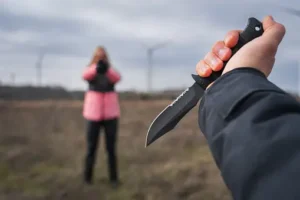Table of Contents
ToggleVIEW ABOUT DOGS IN ISLAM
Dogs have always been the great topic of discussion in Islam. People hold very strict views about dogs in Islam. While some believe that keeping dogs at home or inside one’s apartment is legal in Islam and Islam does not prohibit Muslims to keep the dogs, the majority of the Muslims (around 95%) believe that the dogs must not be domesticated.
In this article, we will analyze various Qur’anic verses regarding Dogs, and also we will look at different Hadith (Narrations of the Prophet).
The sources used in this article are authentic sources which include various verses of the Qur’an and the Sahih Hadith.
QURAN’S PERSPECTIVE ABOUT DOGS IN ISLAM
The dogs have been mentioned two times in two different Chapters (Surah’s) of Qur’an. The first mention about dogs in Islam is found in Surah Al- Maida (Ch 5, V4) of Qur’an, which reads as follows,
The above verse clearly mentions that it is not prohibited to eat the food hunted by the dogs (although the name of the dog is not specifically mentioned).
The another mention of dogs in the Qur’an is in Surah Kahf of the Qur’an (Ch 18, v) of Qur’an which reads as,
The above verses are from Surah Kahf of Qur’an which specifically talks about the dog guarding the people of the Cave.
According to many authentic narrations, the name of the Dog guarding the people of the cave is “Qitmir”.
From the above two verses, one may argue that the dogs are talked about in a positive tone, and thus the dogs are not impure.
Another verse in the Qur’an where the dog finds mention is in Surah AL Ayeraaf (Ch 7, v176) of Qur’an, however in this verse, the denier of truth (Kafir) is compared with a dog who always pants regardless of being chased down or not.
ARGUMENTS AND REPLY FOR THE PERSPECTIVE OF DOGS IN ISLAM
ARGUMENT 1 ABOUT DOGS IN ISLAM:
“If It is allowed to eat what a dog hunts, how could a dog be impure? Elaborate on when hunting the dog will use mouth and teeth and its saliva would probably integrate the hunted animal Elaborate further on the dog being a hunting companion”
REPLY TO ARGUMENT 1:
Verse 4 of Chapter 5 (Surah Maida) clearly mentions that it is allowed to eat whatever the animals trained for the hunting purpose hunts for the humans. According to various Islamic Narrations, the Dog is not considered impure. However, its saliva is considered impure.
Regarding hunting by a dog, when a dog hunts, its saliva will be penetrated into the flesh of the hunting animal. Still, the flesh of the hunted animal the not prohibited for humans. The reason is clear. Human beings do not eat the flesh of the animal directly. Instead, they slaughter the animal (alive or hunted) and wash the flesh, and then they cook. In this whole process, the saliva of the dog penetrated into the flesh of the hunted animal will be washed away, and the flesh will be pure.
According to various authentic narrations, if a dog puts his mouth into the vessel, then the vessels must be washed about seven times with water and the eighth time with the dust.
Thus, all the harmful bacteria and germs penetrated through the saliva of the dog wash away when the flesh is washed thoroughly multiple times with water and then cooked.
Apart from that, the messenger of ALLAH (S.W.T.) said that if the dog hunts an animal, then one may eat it. However, if the dog eats some part of the flesh from it, then the hunted animal becomes prohibited to eat.
ARGUMENT 2 ABOUT DOGS IN ISLAM:
“The dog of the cave people is frequently mentioned -in a positive tone- as an integral good companion of these noble groups of youth. The dog shared their dwelling guarding them while they slept.”
REPLY TO THE ARGUMENT:
Nowhere Islam has said that the dogs are impure and a human could not pet them. However, Islam prohibits dogs to be kept inside the house. This is because the dog may lick various vessels and utensils inside the home. Since the saliva of the dogs is considered impure, it is prohibited to keep them inside the home. However, for the purpose of hunting and safeguarding, one may pet and domesticate the dogs. However, if one is domesticating the dogs, they must be kept outside the premises of the house.
The dog “Qitmir” according to various Islamic narrations guarded the people of the cave. However, the dog is not mentioned to be playing with them physically.
The dog just guarded the people of the cave in a simple sense, and ALLAH (S.W.T) has not forbidden the domestication of dogs for the purpose of safeguarding one’s property.
ARGUMENT 3 AGAINST DOGS IN ISLAM:
In this verse Surah ALl Ayeraaf (Ch 7, v176), the nature of a dog (always panting even if not running) is brought as a parable. There nothing negative about dogs in here.
REPLY TO THE ARGUMENT:
It’s simply a parable where the sinful denier of truth (Kafir) is getting compared with a panting dog. Therefore, there could not be anything negative in this verse. However, the negative is talked about the sinful denier of truth who pants just like a dog even after all the realities come before him.
ARGUMENT 4 AGAINST DOGS IN ISLAM:
The tradition that says that the angels would flee a house if a dog is in that house is absurd and ridiculous. Angels are the creatures that serve to carry specific functions such as recording sins and taking away the souls of humans. Imagine if the presence of a dog becomes a disruption to the conduct of their duties.
REPLY TO THE ARGUMENT:
Nowhere ALLAH (S.W.T.) has mentioned in the Qur’an that the dog is impure. However, there are authentic Islamic narrations (Sahih Hadith) that say that the dogs could not be kept inside the premises of the home, as its saliva is impure and the angels may not enter the house.
– SUNAN IBN MAJAH (Book 28, Hadith 5)
The angels are not of only one kind. There are different kinds of angels. The angels who record sins and various acts of kindness are different. While the angels who bring blessings and happiness inside homes are different.
The Hadith about prohibiting the dogs to come inside the premises of the house is Sahih (as there is a large chain of narrators), as the angels which carry and bring blessings to the people living inside the house may not enter. The Hadith is not talking specifically about the angels which record sins and acts of kindness.
- CONCLUSION:
There is no mention in the Qur’an and Hadith regarding the prohibition of domesticating the dogs. However, few authentic Hadith prohibits petting the dog for the purpose of fun (if the domestication of dogs is not for the purpose of safeguarding the property or hunting).
The Hadith mentioned above does not contradict the Qur’an and the chain of narrators are also large in number. Thus, domesticating the dogs is not prohibited until or unless it is for the purpose of safeguarding one’s important property or land, or hunting.
If you have any Questions regarding the content, then do contact us by filling the Contact form, and do subscribe to our Newsletter for the latest Articles.
















